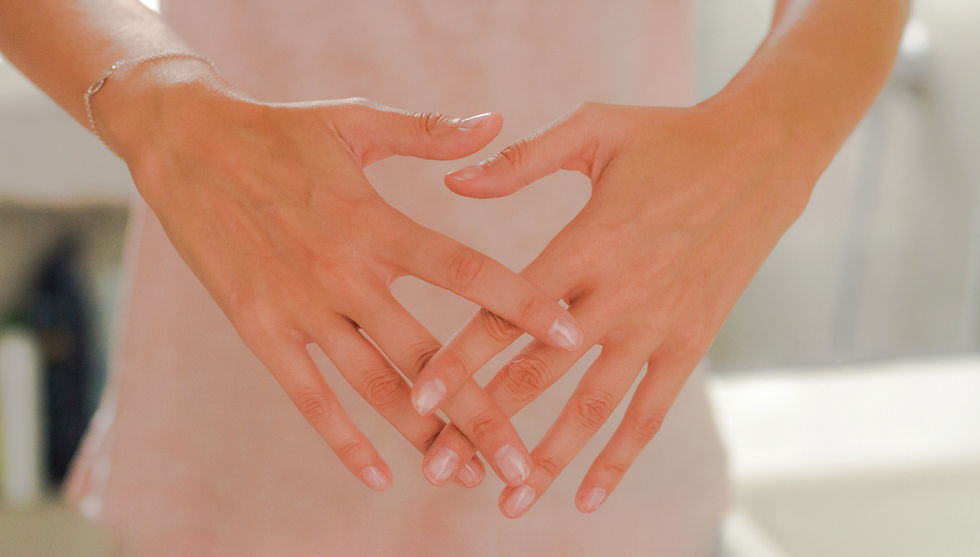What Teens Should Know About the Menstrual Microbiome
- Liya Murdoch
- Aug 23, 2025
- 4 min read
When we talk about periods, most of the focus tends to be on the obvious: cramps, bleeding, mood swings, or the hassle of finding the right products. But beneath the surface, something far more complex and fascinating is happening inside the body. Scientists are discovering that your menstrual cycle is closely tied to something called the menstrual microbiome: the community of tiny organisms, mainly bacteria, that live in the vagina and change throughout your cycle. Just like your gut has a microbiome that helps digest food and protect your health, the vaginal microbiome plays a critical role in maintaining balance, preventing infections, and even influencing how you feel during your period.

The vaginal microbiome is dominated by a group of bacteria called Lactobacillus. These bacteria produce lactic acid, which keeps the vaginal environment slightly acidic. That acidity acts as a natural protective barrier, preventing harmful microbes from taking over. When Lactobacillus is thriving, most people experience fewer problems like irritation, unusual discharge, or infections. But when this balance is disrupted, harmful bacteria or yeast can multiply, causing conditions like bacterial vaginosis or yeast infections. For teens, this is especially important because hormones are fluctuating and bodies are still adjusting to regular menstrual cycles, which means the microbiome can shift more dramatically than it might later in life.
Interestingly, research has started to show that the menstrual microbiome may be linked to PMS symptoms. Scientists are exploring whether certain bacteria are connected to inflammation in the body, which could explain why some people experience stronger cramps, mood changes, or bloating around their cycle. While the research is still in early stages, the possibility that the tiny microbes in your body could influence your emotions and physical discomfort during your period is both surprising and exciting. It suggests that understanding and caring for your microbiome could become part of managing PMS in the future.
Another important part of the conversation is how menstrual products interact with the microbiome. Tampons, for example, are very convenient but can create a risk if left in too long. The reason is that tampons absorb blood and create a warm environment where harmful bacteria can grow. In very rare cases, this can lead to toxic shock syndrome, which is why it’s so important to change tampons regularly. Pads, on the other hand, don’t carry that same risk but can sometimes trap moisture and cause irritation, especially if they aren’t changed often enough. Menstrual cups, which are reusable and eco-friendly, appear to have less impact on the vaginal microbiome when cleaned properly, though research is still ongoing. The big takeaway is that all products have pros and cons, and listening to your body’s response is key.
One common myth is that you need to use special products to “clean” your vagina, especially during your period. Ads for douches or scented washes make it seem like your body needs extra help, but the reality is that these products can disrupt the microbiome by removing the healthy Lactobacillus bacteria that protect you. Instead of helping, they can make infections more likely. The vagina is naturally self-cleaning, and warm water with mild, unscented soap on the outside (the vulva) is all you really need. Over-washing or using harsh chemicals is more harmful than helpful.
The menstrual microbiome is also a growing area of research in global health. Scientists are studying how imbalances in vaginal bacteria might be linked not only to infections, but also to reproductive health challenges, such as fertility issues or increased risks of certain conditions. For teens, this science might seem far off, but it highlights why protecting your microbiome from an early age can set the stage for long-term health. Small choices, like avoiding scented products, using breathable cotton underwear, and keeping products clean, an support the bacteria that are working hard to protect you.
Cultural practices and access to menstrual products also play a role in microbiome health. In places where people don’t have access to clean pads or tampons, they may resort to using unsafe alternatives like rags, newspapers, or other materials. These not only increase infection risk but also disrupt the natural balance of bacteria. Even for teens in countries where period products are widely available, it’s important to understand that product quality and safety can directly impact microbiome health.
What makes the menstrual microbiome so fascinating is how dynamic it is. It doesn’t stay the same all month long. During menstruation, when blood changes the vaginal environment, the microbiome tends to be less dominated by Lactobacillus. As estrogen rises during the follicular phase, Lactobacillus usually recovers and thrives again, restoring the acidic balance. Then, in the luteal phase, before your period begins, the microbiome can shift once more.
For teen girls learning about their bodies, this science can feel empowering rather than overwhelming. It reminds us that menstruation is not just about discomfort but about an incredibly sophisticated system at work. Paying attention to your microbiome means respecting your body’s natural rhythms, noticing when something feels off, and making choices that support balance. If you ever notice persistent irritation, strong odors, or unusual discharge, it’s worth talking to a healthcare provider, not because something is “wrong” with you, but because your microbiome might need some extra attention.
The menstrual microbiome is still a new frontier in science, but it carries a powerful message for teens: your body is smart, adaptable, and always working to protect you. Learning about it now means you can grow up making informed choices about your health, your products, and your wellbeing. The more we understand about this hidden world of bacteria, the better equipped we’ll be to tackle challenges like PMS, infections, and stigma with both knowledge and confidence.



Comments